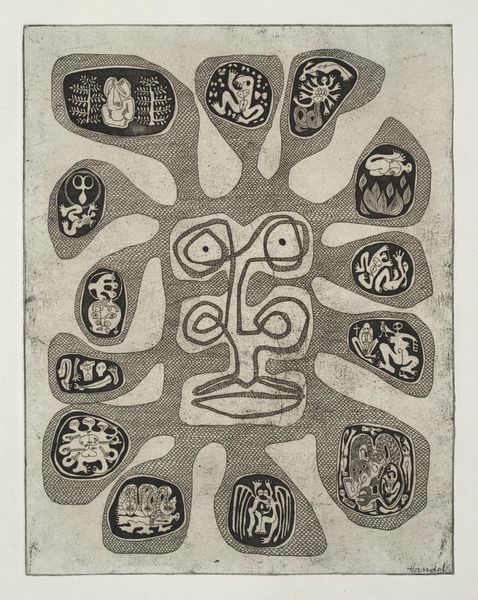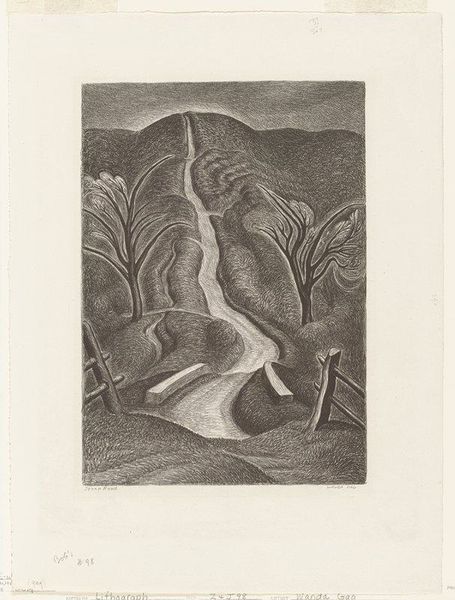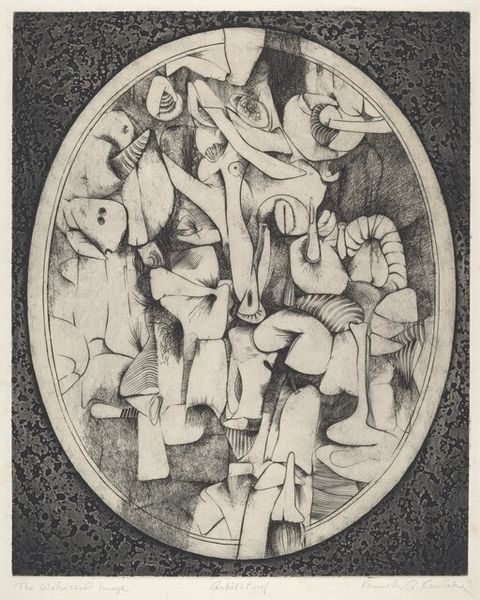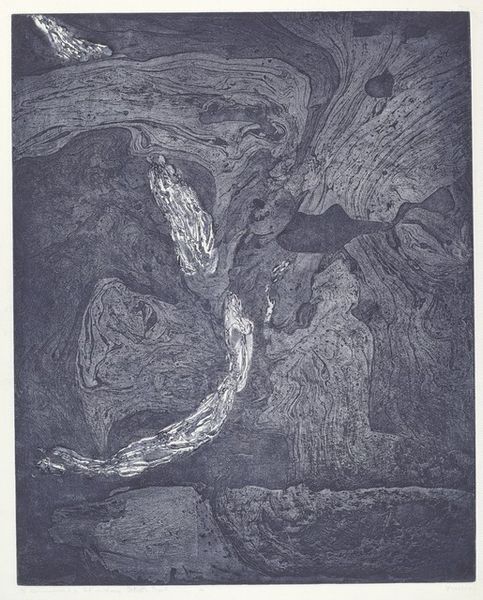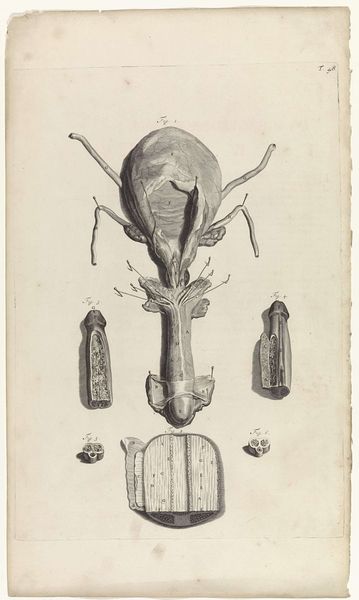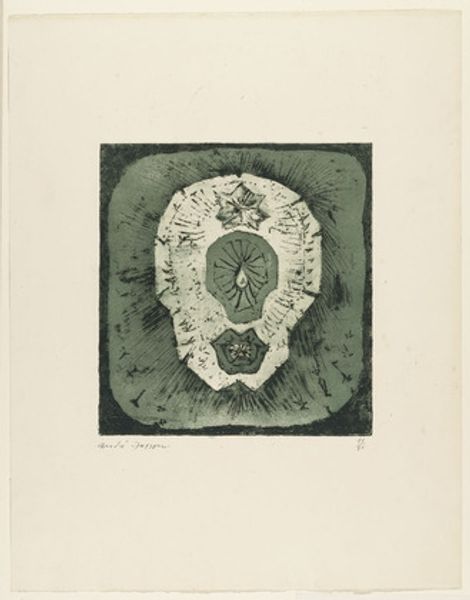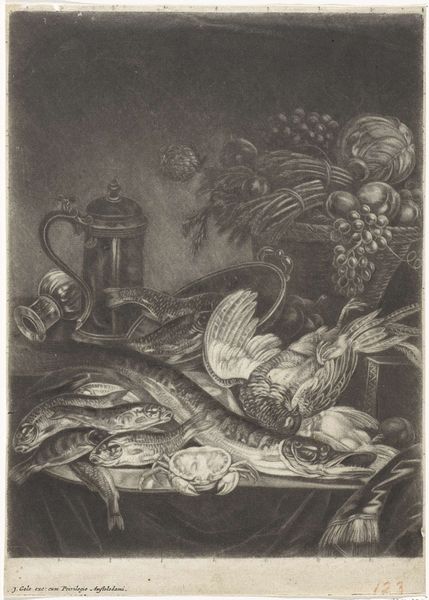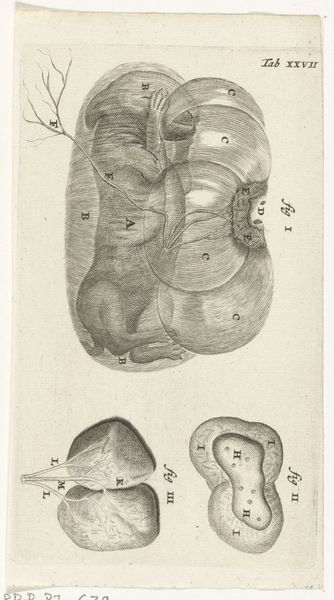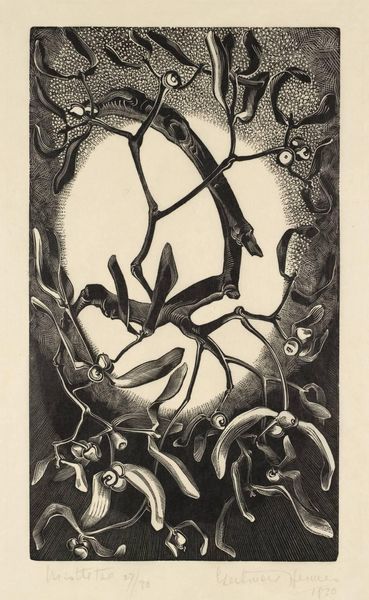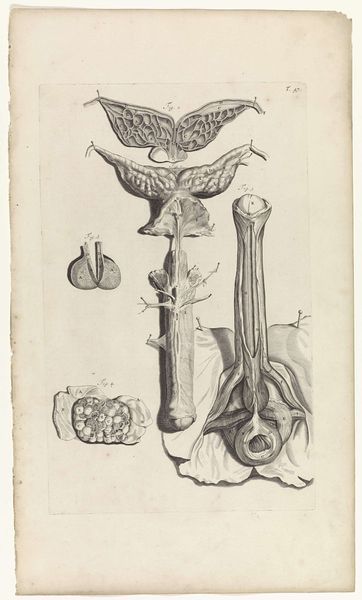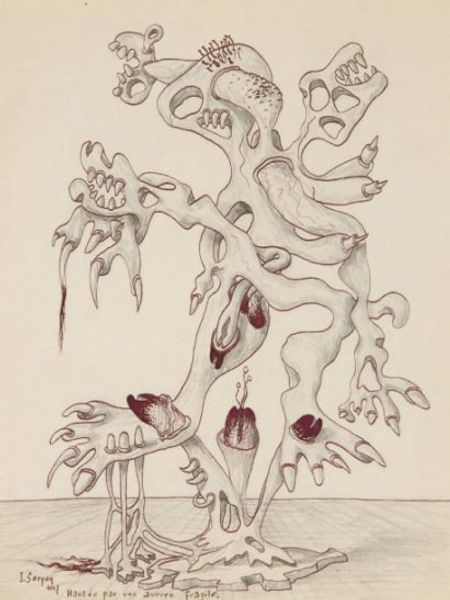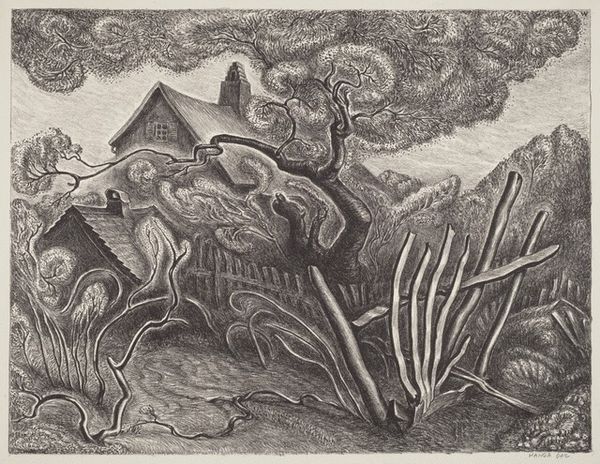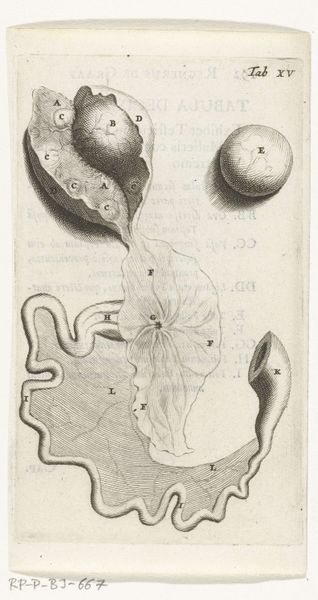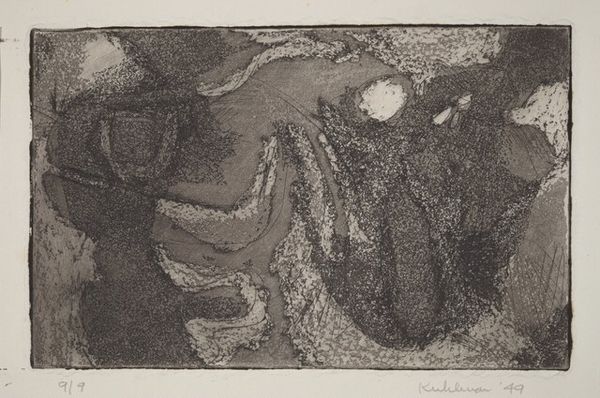
Dimensions: Image: 202 x 175 Sheet: 235 x 240
Copyright: National Gallery of Art: CC0 1.0
Curator: This is "Cells," a print made around 1945 by the Swedish artist Bror Utter. Editor: It’s an odd piece, isn't it? The contrast is quite stark, mostly dark and textured except for the almost diagrammatic compartments featuring various figures and scenes. There’s a strong symbolic undertone. Curator: Absolutely. Utter was deeply engaged in the artistic circles that responded to the horrors of World War II. His work often probes the fractured psyche and the search for meaning amid devastation. Note the "cells" themselves—they seem like fractured memories or visions. The imagery echoes surrealist explorations of the subconscious. Editor: I see what you mean. Looking at the individual vignettes, each one feels like an isolated thought. There's one with two figures embracing, a bird in another, an octopus below... It is quite a complex composition with the vein-like connections linking them all together, creating this sense of inner dialogue. What do you think of the linear quality of the engraving, reminiscent of old medical illustrations? Curator: That linear style speaks to the prevailing cultural anxieties about the body and mental health. Post-war, there was widespread institutional and societal focus on analyzing and categorizing the self. Also, recall Sweden's unique position during the war, maintaining neutrality yet witnessing trauma from afar. Artists like Utter often grappled with survivor’s guilt and the responsibility of representation. Editor: It’s interesting that the most detailed figures are the nude ones. There's a vulnerable yet almost scientific presentation. Does it echo societal debates about sexuality? Curator: Inevitably, yes. Sweden’s relatively progressive stance on sexuality at the time certainly provided a fertile ground for artists to explore the subject with relative freedom, making it a relevant and necessary statement about societal discourse and artistic expression. Editor: I still feel the composition is unsettling despite that apparent openness, a fascinating juxtaposition. Curator: I agree. It is that very tension that makes "Cells" a compelling artifact, offering insights into personal and collective trauma of its time. Editor: An unsettling view into the anxieties of the postwar era, reflected in form as much as subject.
Comments
No comments
Be the first to comment and join the conversation on the ultimate creative platform.
